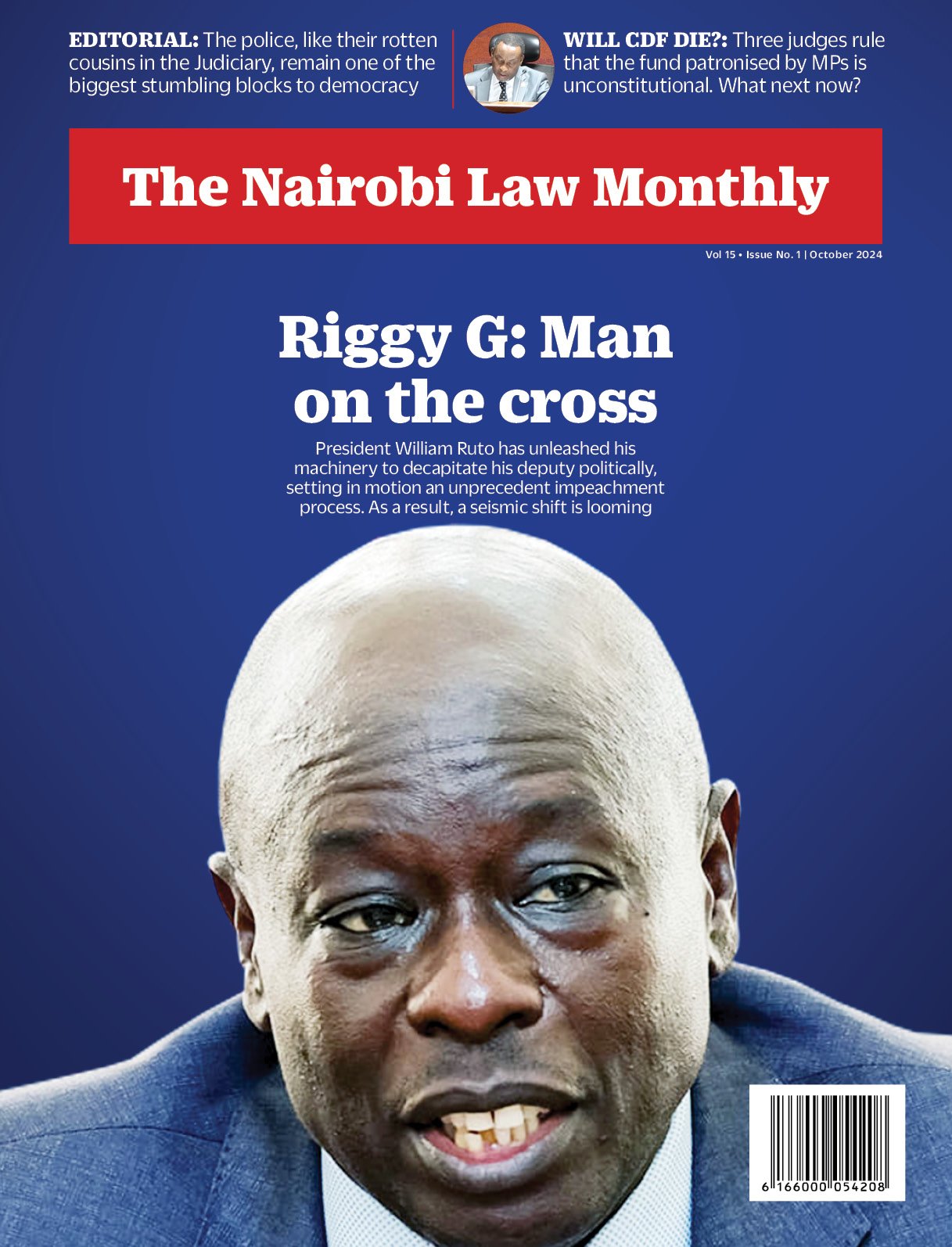BY Wafula Wakoko
To both the Pharaoh and the Israelites, the Constitution of Kenya should mean something. In as much as it may not morph into food on our tables, the law must certainly protect us from elements that wish to steal our food, our means to obtain food and our ability eat.
The Executive’s determination to trample on our laws has in the recent past seemed unhindered. Like the proverbial rainmaker, it has unapologetically showcased when rain can reign. It’s a phenomenon that it has manifested throughout the ages. It is for this reason that the Lockean Social Contract Theory precludes citizens from obeying a government that does not serve its interests (which includes adherence to the law). Our Constitution speaks the same language when it vests sovereign power in the people and permits Kenyans to exercise the said power directly – refusing to obey a government that does not uphold the Constitution.
The discourse on checks and balances through the lens of Philosopher Baron Montesquieu foresaw the disinterest of governments in protecting its people. Since the inherent desire of a government is to subdue its people, Montesquieu’s principle has never been appealing to those in power. Nonetheless, the ugliness of checks and balances exist to protect the Government from itself, not to manifest and actualise its true colours of harming the citizenry, as that will stir Article 1 into life and bring about civil disobedience.
Kenya has witnessed an unholy union between the Legislature and the Executive in enacting laws that contravene the Constitution. Instances of refusal by the Executive to obey court orders have not only been pronounced but have also been lauded by those in power. Parliamentarians affiliated to the government have argued that it’s their duty to support the government. Who is then to perform the Parliament’s duty of checking the government? Is that not among the duties of a legislator? What excuse then, not that it will not be devoid of logic, do Parliamentarians in the opposition rely on to support an oppressive Executive? The jury will be deliberating for long!
It is not up for debate that one of the pillars of the Constitution of Kenya is inclusion. The government has a constitutional duty, whose time has lapsed, to implement the two-third gender principle. The discussion on the reasons for and against actualising gender equality in appointive and elective positions therefore ought not to sneak into Parliament. Individuals whose duty is to make laws have supported gender equality on grounds that the law might benefit their female relations. Others have opposed gender equality under the guise of dilution of democracy and ballooning of the wage bill. The two factions are both off – a reason one may advocate for limiting free speech within confines of reason. Gender equality is about obeying the Constitution of Kenya! It is about the rule of law.
Whenever laws are applied and enforced against the weak and lulled in the face of the mighty, we must understand anarchy is about to be served. For a country that hides behind speaking in tongues and prayer breakfasts, let’s beware that the plagues that visited the Biblical Egypt will not be a match to what lies ahead.
On the other hand, the time to take back our country might not have come sooner were it not for the Judiciary. This is because the Judiciary is and ought to be on a pedestal. But even as we laud the Judiciary for its commitment towards justice, we must not refrain from calling it out. If treatment of suspects in the recent past with regard to arbitrary arrests and setting of bail is anything to go by, we risk plunging our country into a ‘guilty until proven innocent’ era.
By the misfortune of our history as a nation, we are aware of how freedoms have been curtailed in the name of treason and according the Prosecution time to investigate. This should worry all of us. The door-step phenomena of only questioning the government when one’s life is threatened should be exorcised.
Perhaps today is not the day when the sun comes out of the clouds to light our path but it eventually will. History has not documented any government or arms of government that failed their people without being felled. As they say, everyone must ‘shape in or ship out!’
Long live Article 1! (
— Writer is an Advocate of the High Court


